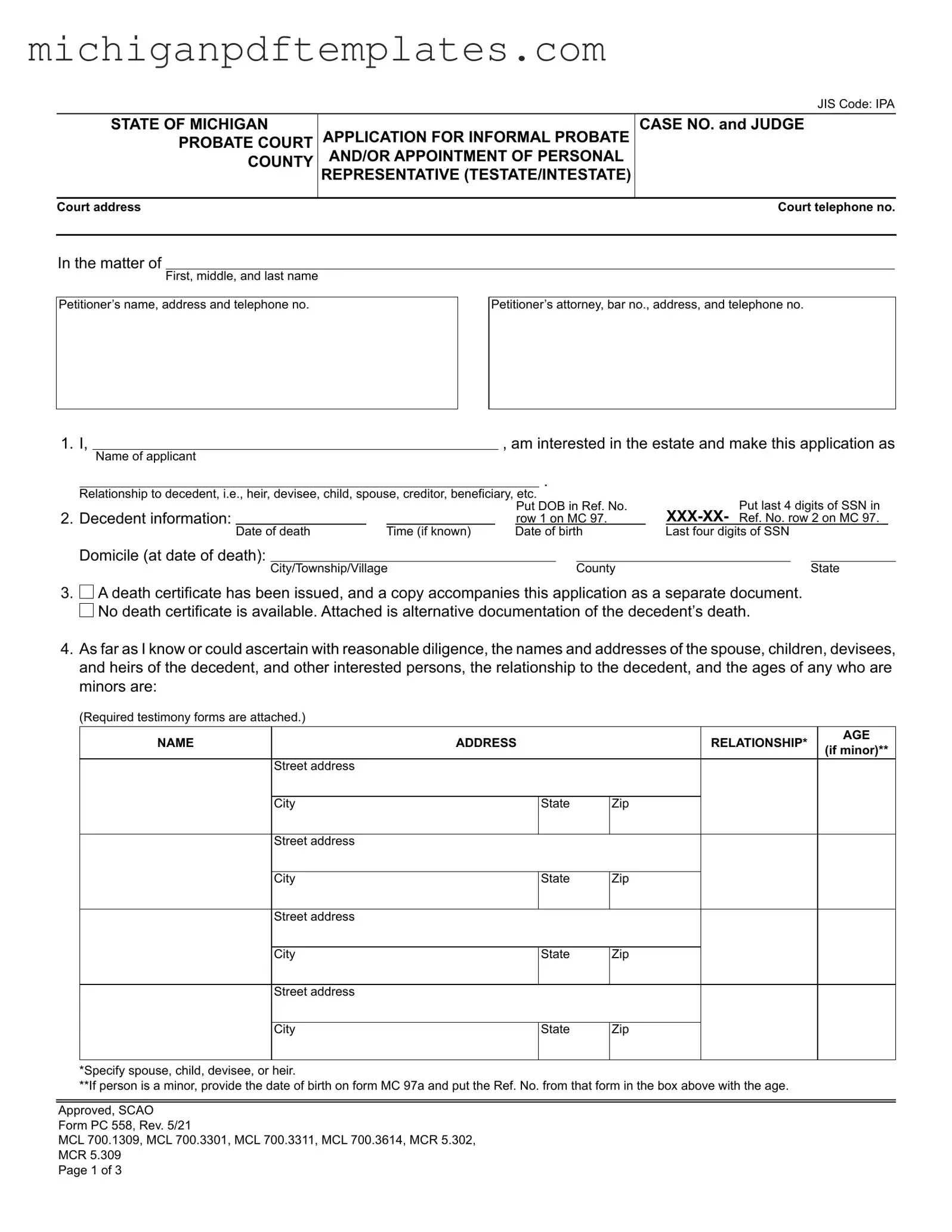Fill in Your Michigan Pc 558 Form
The Michigan PC 558 form serves as an application for informal probate and the appointment of a personal representative, whether the decedent died with or without a will. This document is essential for individuals seeking to manage the estate of a deceased person, ensuring that the probate court has the necessary information to proceed. For those navigating the complexities of estate management, filling out this form accurately is crucial; click the button below to get started.
Get Your Form Now

Fill in Your Michigan Pc 558 Form
Get Your Form Now

Get Your Form Now
or
▼ PDF Form
Finish this form quickly and move on
Fill in and complete Michigan Pc 558 online quickly.